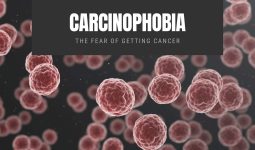The prostate gland is an essential part of the male body; it adds part of the fluid that makes up the semen.
So whether you are male or female, so long you have a brother, a boyfriend, a husband, son, or a close friend, it is essential you know what prostate health is about and know how to prevent prostate cancer.
A healthy human’s prostate is just a bit larger than a walnut, and it surrounds the urethra just below the urinary bladder. Also, it secrets fluid, which protects and nourishes sperm.
During ejaculations, it squeezes the fluid into the urethra, and it is expelled with the semen.
What are the common issues that affect the prostate health?
There are some challenges men face with their prostate glands, and the earlier you identify these challenges, the better for your health.
Prostatitis
Prostatitis is sometimes caused by an infection that leads to the inflammation of the prostate. The good news is, it is treatable. Discuss it with your doctor for more information.
Enlarged Prostate
An enlarged prostate, also known as benign prostatic hypertrophy or BPH, is a prostate growth that affects men, especially those over 60 years old. One of the symptoms is difficulty in passing out urine. An enlarged prostate can be treated with medicines or surgery.
Prostate Cancer
Prostate cancer is one of the common forms of cancer in men, but only one in forty-one men dies from prostate cancer. It can be treated with hormone therapy, radiation, surgery, and chemotherapy.
Why Prostate Test?
It is essential to go for a general medical checkup; it is one of the healthy practices anyone can indulge in, but unfortunately, people, especially, from this part of the world do not see reasons to visit the doctor except they feel severe pains which they’ve tried to shake off. A prostate test like any other medical test is vital, and below are some terms you may get to see or hear when preparing for a prostate test.
Digital rectal examination (DRE): in this case, your doctor inserts a lubricated, gloved finger into the rectum and feels the prostate. The DRE can sometimes detect an enlarged prostate, lumps or nodules of cancer, or tenderness from prostatitis.
Prostate-specific antigen (PSA): Prostate makes a protein called PSA, which can be measured by a blood test. If the PSA is high, then prostate cancer is more likely, but an enlarged prostate can also cause an elevated PSA. Recommendations about whether or not a man should be screened and at what age differ.
Prostate ultrasound (transrectal ultrasound): in this technique, an ultrasound probe is inserted into the rectum, bringing it close to the prostate. Ultrasound is usually done with a biopsy to test for prostate cancer.
Prostate biopsy: A needle is inserted into the prostate to take tissue out to check for prostate cancer. This is usually done through the rectum.
Are prostate diseases treatable?
Yes, it is when it is detected early; that is why it is important to encourage men around you to go for a prostate test.
Enlarged Prostate treatment
Alpha-blockers: This relaxes the muscles around the urethra in men with symptoms of an enlarged prostate. Which allows urine to flow more freely.
5-alpha-reductase inhibitors: such medications reduce the level of a particular form of testosterone (DHT). When such testosterone is less, the prostate shrinks. Which improves the flow of urine.
Surgery for an enlarged prostate: In most cases, medications resolve symptoms of an enlarged prostate, but some men require surgery to improve the symptoms and prevent complications.
Prostate Cancer Treatment
Prostatectomy: this surgery for prostate cancer, called a prostatectomy, removes the prostate intending to eliminate all diseases.
Radiation therapy: Radiation is used to kill prostate cancer cells and minimize damage to healthy cells.
Cryotherapy: in this method, the prostate cancer cells are killed by freezing them.
Hormone therapy: Prostate cancer cells’ growth basically responds to hormones. Hormone therapy helps block that effect.
Chemotherapy: When prostate cancer is in an advanced stage, chemotherapy may be used to help reduce cancer’s spread.
Watchful waiting: Since prostate cancer is often growing slow, some older men and their doctors hold off on treatment and wait to see if the disease appears to be growing.
Prostatitis Treatment
Acute and chronic prostatitis: Depending on the type of prostatitis, treatment includes antibiotics, other medications, and/or surgery.
How to improve prostate health
There is no proven way to prevent prostate cancer. Yes, anyone that tells you otherwise is a sham.
Nonetheless, you can practice some healthy habits that will improve your prostate health and general well-being, from eating a healthy breakfast to exercising all contribute positively to your health.
- Investing in low-fat meal,
- Increasing your consumption of fruit and vegetables.
- Reduce the number of dairy products you consume.
And investing your time to exercise, scientists have proven that men that exercise regularly have a lower risk of prostate cancer.








